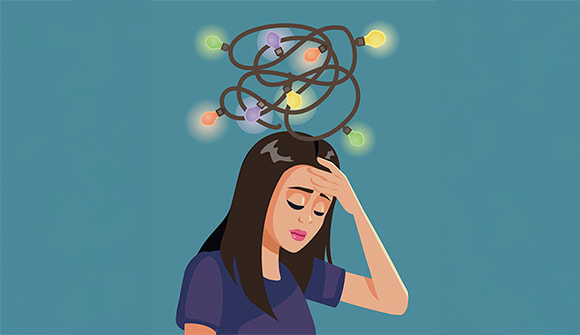How men can speak up about mental health
Mental illness affects men and women, but men seek help at less than half the rate. What gives?
Article Date:

Mental illness doesn’t discriminate. According to the American Psychological Association (APA), more than six million men experience depression on a daily basis and three million struggle with anxiety, but only one in four of them speak with a medical professional.
Data from the Centers for Disease Control and Prevention (CDC) rank suicide as the seventh leading cause of death for men, who are four times more likely to die by suicide than women. It’s the second most common cause of death for men ages 10 through 39.
Keeping Quiet
If so many men are affected by mental illness, why are they seeking professional help less frequently and resorting to suicide more often than women?
“Societal norms,” explained John Repique, DNP, RN, a psychiatric nurse and system director of Inpatient Behavioral Health at Baptist Health. “Traditionally, women are viewed as more in tune with their emotions, while men are supposed to present a strong façade that doesn’t convey emotions. Our society makes it seem like a sign of weakness if men show emotion. We have this culture that tends to overvalue hyper-masculinity and says that men aren’t supposed to express their feelings — they’re supposed to bottle it up.”
Dr. Repique believes this stigma — men who express their emotions are weak — may be part of the reason they aren’t seeking medical attention and being diagnosed with mental health conditions as often as women. And just how heart attacks have different symptoms for men and women, signs of mental illnesses can differ between the sexes.
Recognizing Symptoms
For example, men with depression are more likely to exhibit reckless decision-making or more frequent use of alcohol rather than sadness or changes in body weight. Diagnosis rates could also be impacted by how men are reporting their symptoms.
“Women, who are more practiced at recognizing and talking about their emotions, are more likely to report feeling prolonged sadness,” said Dr. Repique. “They tend to have a greater awareness of how their emotional health is related to their physical health. When men go to their physicians, they are more focused on physical symptoms. They’ll note things like, ‘I’m having insomnia,’ or ‘I’m having low energy.’ They’re not correlating that with emotional health."
Making A Change
For men who may have concerns about their well-being, mental health care providers say it’s crucial to stop manning up, and opt for opening up instead.
“One way to do this is to make sure men are educated about mental health,” recommended Dr. Repique. “For example, depression is not just sadness — it’s prolonged. If you are not recovering from it after a matter of weeks and it impairs your functioning, then it’s time to get help. If you have the education, you’re more aware of when to seek help.”
He added, “Another piece of advice is for men to do self-checks. There are three things you need to ask yourself. One, what are your thoughts about? Two, are they mostly negative or pessimistic? And three, have your body and behavior changed?”
If a man decides to visit his doctor but is unsure how to broach the subject of mental health, it may be helpful to cite an example.
“To me, celebrities and professional athletes coming out publicly to talk about their depression are a big help. When a man goes to his primary care physician, he might be able to use that example to strike up that conversation with his doctor,” said Repique.
And of course, having a support system is vital.
“It’s important to have a buddy you feel comfortable talking to about your innermost thoughts and feelings. They could be a friend, a family member or your partner,” Dr. Repique said. “Men need to know there is nothing wrong with talking about your emotions. It takes strength to feel and express your emotions, because if you don’t, it could lead to more tragic consequences.”
If you or a loved one is interested in learning more about mental health, please check out Baptist Health's upcoming free Mental Health First Aid courses.
To register for Mental Health First Aid or find additional class dates, visit jaxmentalhealth.org.



